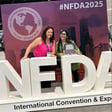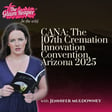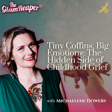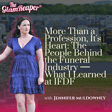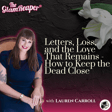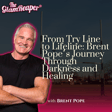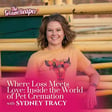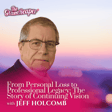
Death Glitch: How Tech is Changing Mourning Forever
In this episode, Jennifer Muldowney sits down with Tamara Kneese, Author, and Leader of the Data & Society Research Institute’s Algorithmic Impact Methods Lab. They explore the intersection of death, and technology.
Tamara, an academic and writer, shares her unique insights into how technology is rapidly changing the landscape of digital legacy and mourning. From her book "Death Glitch" to recent discussions on AI and grief, Tamara reflects on the evolving challenges and the necessity for continuous research in the field of Death and Tech.
The conversation delves into the history and evolution of digital cultures, highlighting the rise and fall of startups in the funeral space.
Don't miss this insightful discussion on the future of digital legacy and the intersection of technology and mortality!
Key Topics:
-How technology impacts our final farewell
-Navigating digital legacies in the funeral industry
-The rise and fall of tech-based funeral services
-Preserving memories in a digital age
-Ethical concerns with future tech in funerals
Quotes From The Episode:
“A lot of my work is more focused on the people who are creating companies and so the startup ecosystem and understanding the motivations behind that”
- Tamara Kneese
“A funeral is both for the living and the deceased”
- Jennifer Muldowney
Timestamp:
[00:00] Podcast Intro
[00:36] Tamara explored the intersection of digital subcultures
[02:49] Jennifer and Tamara shared their experiences and interests in the death industry.
[09:00] Tamara expressed discomfort with interviewing grieving individuals for her book.
[17:01] Jennifer highlighted the complex emotional and ethical issues surrounding AI and digital legacies.
[19:08] Jennifer and Tamara discussed the increasing potential for deception and scams with AI technology.
[21:06] Jennifer talks about the limited control over one's digital legacy after death.
[23:37] Jennifer and Tamara delve into the need for big tech companies to include memorialization in their policies.
[25:18] Outro
Connect with Tamara Kneese:
LinkedIn - linkedin.com/in/tamara-kneese
Website - https://www.tamarakneese.com/
Twitter/X - @tamigraph
Connect with Jennifer/The Glam Reaper on socials at:
Facebook Page - Memorials
https://www.facebook.com/MuldowneyMemorials/
Instagram - @muldowneymemorials
Email us - glamreaperpodcast@gmail.com
Listen to The Glam Reaper Podcast on Apple Podcasts:
https://podcasts.apple.com/us/podcast/the-glam-reaper-podcast/id1572382989?i=1000525524145
YouTube - https://www.youtube.com/channel/UCWe3sNoPny6UsMGYoYDeXfw

